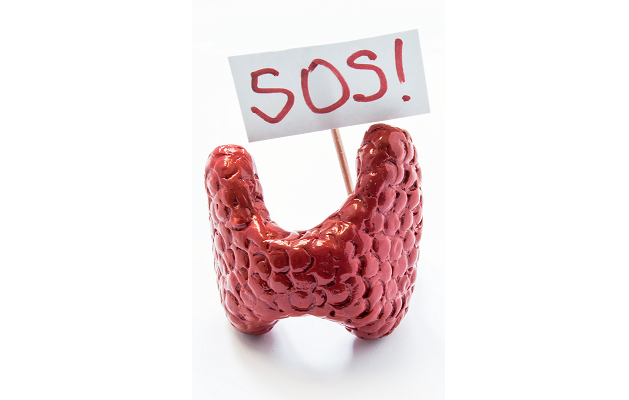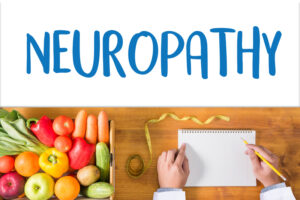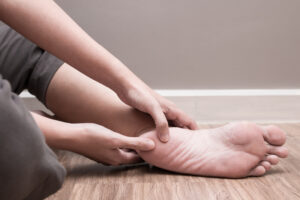Have you ever felt like you had a thyroid issue and your doctor runs a test, usually just a TSH, and says your thyroid is “okay”? Frustrating isn’t it? I’ve seen many people come in with just that story – they have a plethora of symptoms that appear to reveal an abnormal functioning thyroid – but doc says “no”.
So, what are the symptoms of a low functioning thyroid? The most common are: fatigue, problems with temperature regulation, tending towards being cold, especially hands and feet, weight gain – especially around hips, dry skin and constipation. But there are other symptoms that are just as suspicious: Muscle weakness, achiness, tenderness or stiffness, thinning hair, loss of the outer 1/3 of eyebrow hair, hoarseness, depression, foggy thinking, poor memory, enlarged thyroid gland, slowed heart rate, elevated cholesterol levels, puffy face, swelling or redness around the thyroid area of the neck, joints that ache, are stiff, painful or swell, or a menstrual cycle that is heavier or more irregular than normal.
The symptoms of hyperthyroidism (thyroid is over-doing it): Fatigue, loose stools, heart palpitations or racing, intolerance to heat, irritability, nervousness or mental disturbances, light or missed menstrual periods, infertility, insomnia, appetite either increased or decreased, irritability, dizziness, thinning and brittleness of hair, blood sugar instability, hives or itching, changes in vision, shortness of breath, tremors or shaking, unexplained weight loss or weight gain, muscle weakness, or increased sweating.
Obviously, the body tells us in many ways that something is wrong. You may have seen yourself in this array of symptoms – it is unlikely to be all of them – and you are wondering what to do next.
First, we have to do some deeper exploratory work. We need more than just one or two blood tests so that we can figure out not only if the thyroid is struggling, but why. It is not unusual that someone has normal values in the one or two thyroid tests done, then when one is done to see if there are auto-antibodies against the thyroid, the test comes back extreme! Now, it isn’t always your doctor’s fault that these tests are not run. They are subject to insurance company rules and protocols that may not include doing a full panel. You may have to insist that they run a complete battery of thyroid tests.
Once the detective work has been done either with traditional labs or other tests, we can now go to work in helping the thyroid. Food can have a major impact on the thyroid. Foods that help are whole foods, most greens and veggies – lots of them, raw nut butters, eggs, brazil nuts, mushrooms, beef, lamb, seeds, legumes, garbanzos, pumpkin seeds, and healthy fats (butter, coconut oil, olive oil mostly). There is much that can be done to support and build up a struggling thyroid, including acupuncture, nutritional therapy and more. The first step is to identify WHY the thyroid is struggling. The next step is to take action to help the thyroid function optimally, so that you can feel great again.
©2019 Holly A. Carling, O.M.D., L.Ac., Ph.D.







